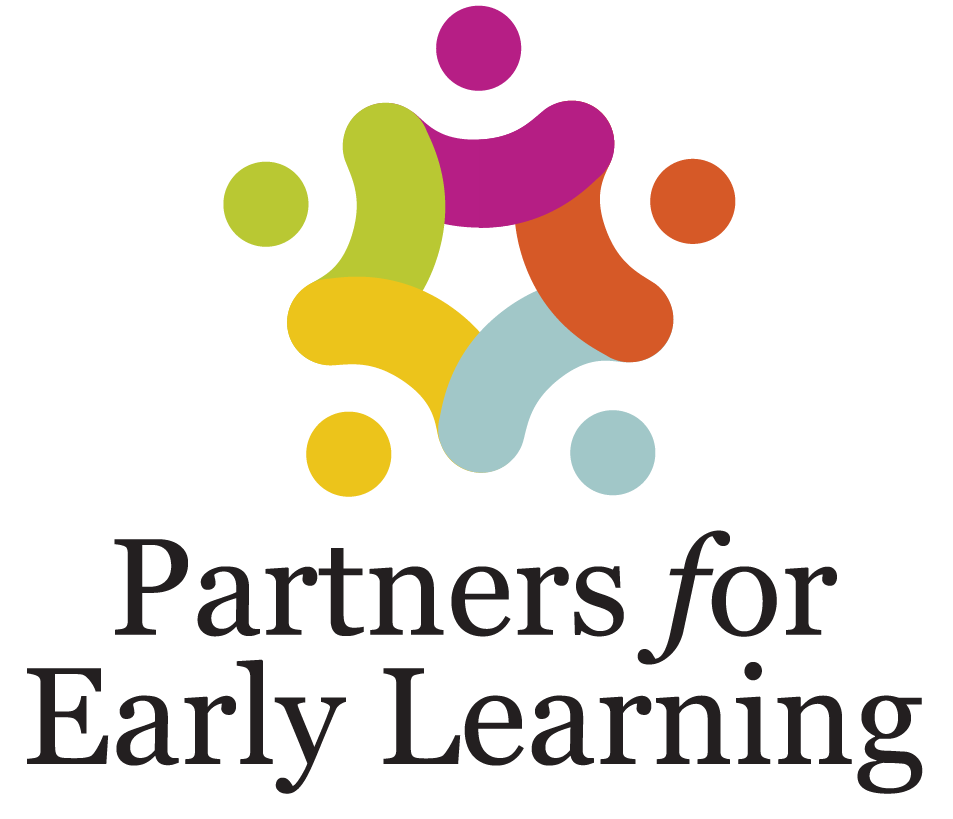Learning
Learning Milestones For Your Child
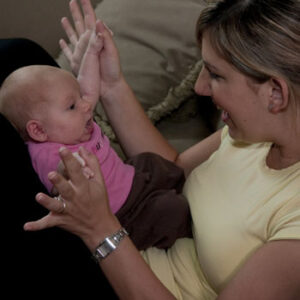
Cognitive and Learning: Overview (0-6 Months)
Cognition refers to how we think–and much more. It includes perception, coordinating information from our senses, memory, speech, and problem-solving.
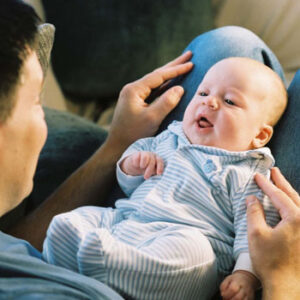
Capable of Imitating Facial Gestures (0-2 Months)
Newborns are not “blank slates” incapable of interacting with others. Newborns only hours old have been found to copy facial
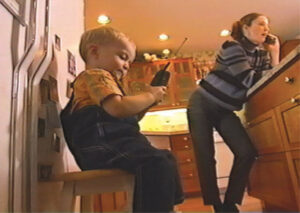
Copycats: How Children Learn from the Actions of Others
Fortunately for parents, young children are amazing students. They’re so good at learning, they do it even when we don’t
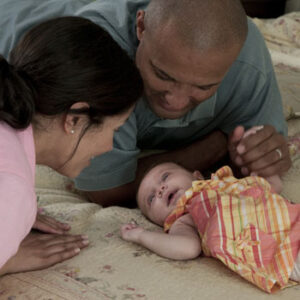
Can Differentiate between Familiar and Unfamiliar Faces (0-3 Months)
Infants quickly become experts at scanning and identifying faces. A newborn infant can distinguish between its own mother’s face and
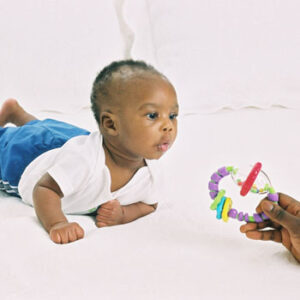
Capable of Mathematical Reasoning: a Quantitative Skill Termed Numerosity (0-3 Months)
At birth, infants can process some types of mathematical information. More specifically, this ability involves distinguishing between different numbers of
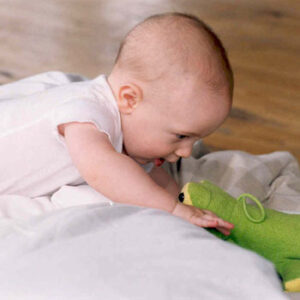
Recognizes that Objects Remain the Same Size and Shape Even If They Are Distant (0-5 Months)
When an object like a ball is moved some distance away, the eye perceives the ball as getting smaller, even
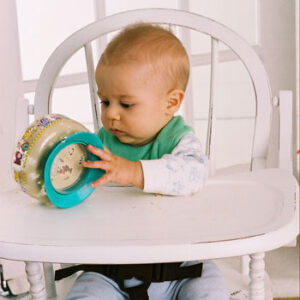
Capable of Making Predictions, Creating and Testing Hypotheses about the Real World (0-6 Months)
Infants are active learners at birth. They are especially good at using their developing physical skills to interact with the
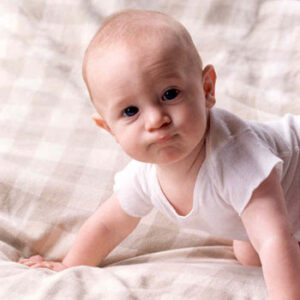
Capable of Demonstrating Certain Types of Memory (0-7 Months)
All the physical, emotional, and face-to-face experiences that infants have regularly form a network of unconscious expectations and reactions to
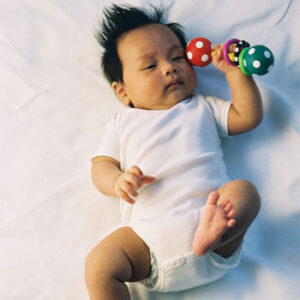
Cross-Modal Perception: Can Relate What They Feel with What They See (1-4 Months)
For infants to make sense of the sights, sounds, and feelings that buzz around them, they need to coordinate this
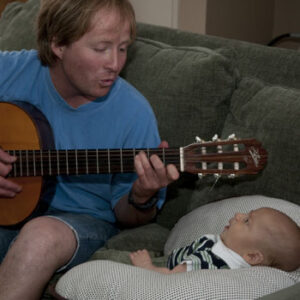
Language Learning Begins (1-6 Months)
It’s never too early to enjoy a “conversation” with your baby! Neuro-imaging studies show us that long before a baby
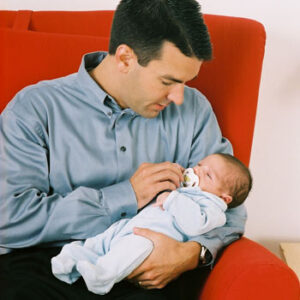
Cross-Modal Perception: Can Relate What They Hear with What They See (2-4 Months)
Young infants are also capable of relating what they hear with what they see. One study tested two-month-old infants’ ability
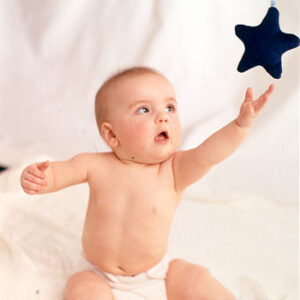
Struggles To Get Objects That Are Out Of Reach (3-6 Months)
At 4 months, babies begin coordinating their emerging perceptive abilities to struggle to get objects that are out of reach.
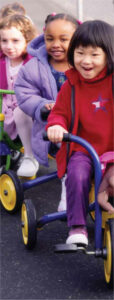
Explores the World (4-7 Months)
Although newborns react primarily by reflex, babies begin making choices and actively exploring the world around them at 3 to
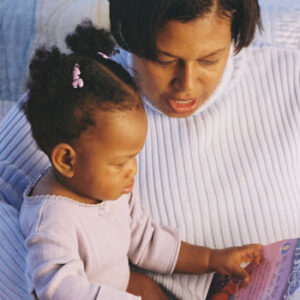
Cognitive and Learning: Overview (6-12 Months)
Between six and twelve months, babies eagerly explore the world around them. When they’re not playing peek-a-boo, they will grab
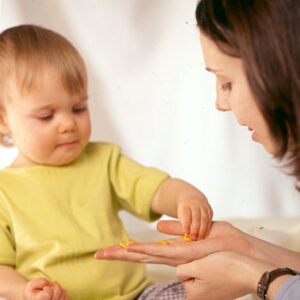
Can Perform Simple Addition and Subtraction Exercises (5-10 Months)
Several studies have shown that infants understand some basic concepts about numbers. By around 5 months, infants show surprise when
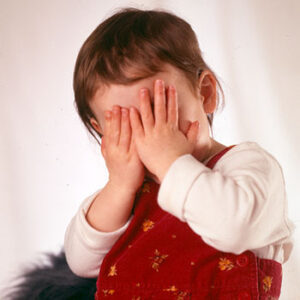
Acquires the Notion of Object Permanence (That a Hidden Object Still Exists Even If One Can’t See It) (7-12 Months)
Before 8 months, a baby will think that an object has disappeared if it is covered or hidden from view.
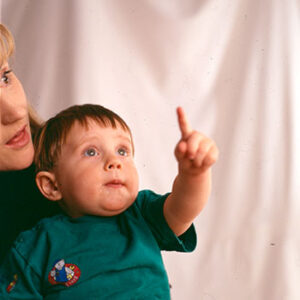
Memory Improves (8-12 Months)
At around 8 months, there is a change in the way that infants remember. Before, they could recognize objects and
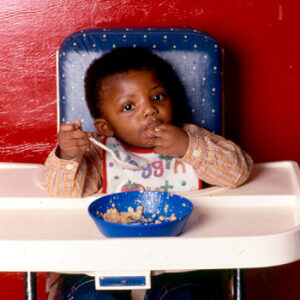
Attempts to Use Objects “Correctly” (Using a Phone, Drinking from a Cup, etc.) (8-15 Months)
Between 8 and 12 months of age, babies become increasingly conscious that items have names and particular functions associated with
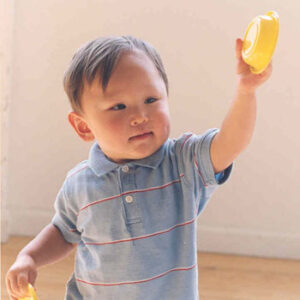
Explores Objects in Many Different Ways (Shaking, Banging, Throwing, Dropping) (8-16 Months)
As they approach their first birthday, babies begin experimenting with everything they find: dropping, rolling, shaking, throwing, submerging, or waving
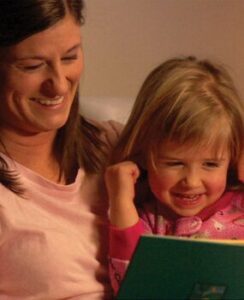
Take a Break with Books
Cereal is on the floor, the laundry is piled high, and your toddler comes to you with her favorite book
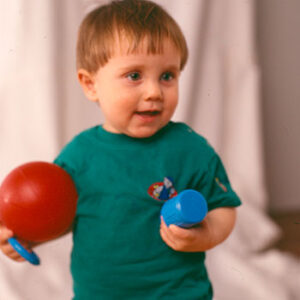
Can Distinguish between Two vs. Three Objects (9-12 Months)
By 7 months, infants can tell the difference between different numbers of objects and match the number of sounds they
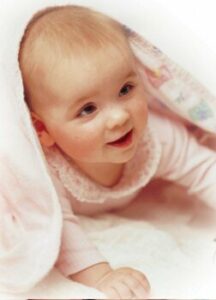
Peek-A-Boo
Young children are great explorers From birth to age five, children learn an astonishing amount about how the world works.
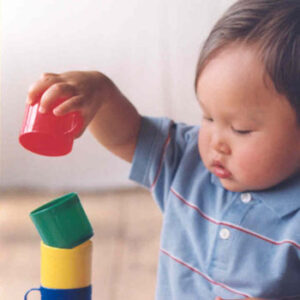
Cognitive and Learning: Overview (12-24 Months)
In their second year, children become more creative in exploring the world. They continue to drop, throw, and bang objects
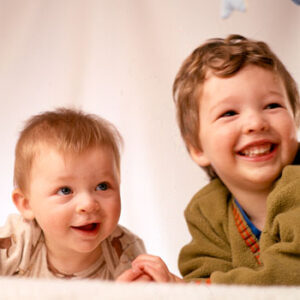
Recognizes the Difference between Self and Other People (12-20 Months)
Between 12 and 15 months, children increase their awareness of themselves as different from others. Although self-awareness develops more fully
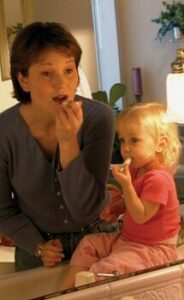
Copycats
The world’s best copycats. Babies are born learning from you. Even at birth, infants can watch what you do and
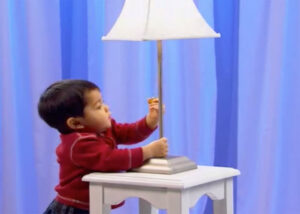
Testing 1,2,3: How Children Learn through Repetitive Behavior
When children begin their second year, it can be a very difficult time for parents and caregivers. Children at this
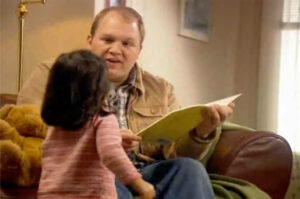
Dad’s Club: Make Reading Fun
“Daddy! Read me a story!” he says while you tuck him between the sheets. And before you know it, he’s
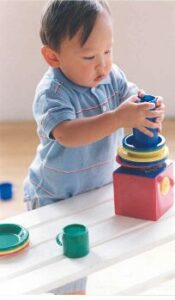
Baby See, Baby Do (15-24 Months)
Babies can remember a lot For decades, scientists didn’t think babies could remember much. Although parents and caregivers suspected that
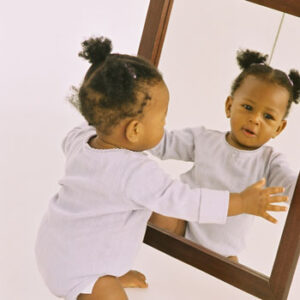
Recognizes Own Facial Features (15-24 Months)
Sometime between 15 and 24 months, children take a large step in self-awareness. In an experiment known as the “rouge
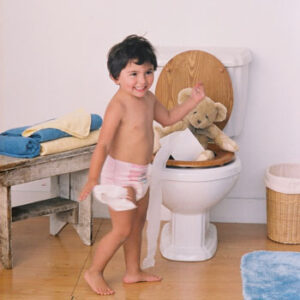
May Show an Interest in Being Potty Trained (16-25 Months)
Many toddlers are ready for toilet training after their second birthday, but early training is possible with some children. If
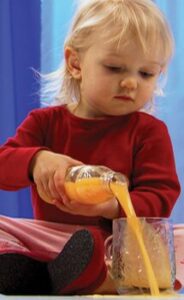
Testing 1, 2, 3
Is your toddler getting into everything? Has your “little angel” started coloring on your walls? Does she throw her cereal
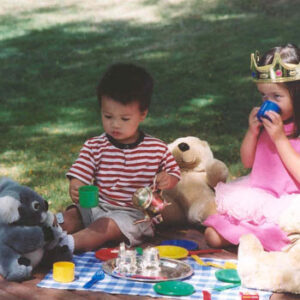
Begins to Pretend in Play (18-24 Months)
Play begins when infants start exploring objects and, at around 18 months, evolve to using them for their intended purpose.
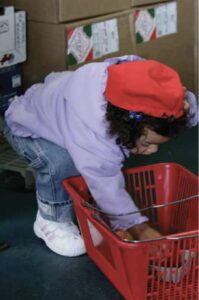
Cognitive and Learning: Overview (2-3 Years)
Between two and three, children become better problem solvers. They can make mechanical toys “work” and can put together puzzles
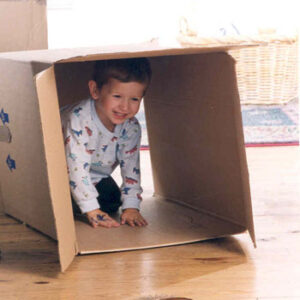
Pretend Play Includes Symbolic Use of Objects (24-36 Months)
Pretend play includes the symbolic use of objects. Once an object has been given an “identity” (for example, a block
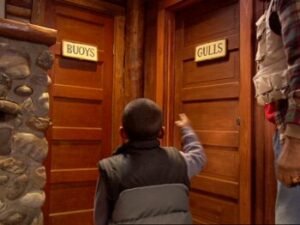
I Know This Word
Words are all around us! Just one more stop before you head home. So into the store, you go. You’re
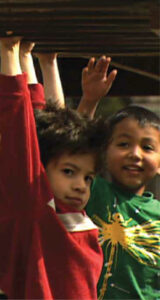
Develops an Understanding of Other People’s Intentions and Goals (25-36 Months)
The beginning of understanding other people’s minds is gradual; at 9 months, an infant may exhibit “joint attention,” the ability
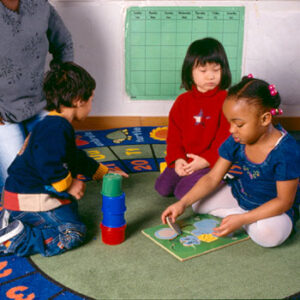
Capable of Completing Puzzles with Three or Four Pieces (26-36 Months)
By the end of their second year, toddlers begin to understand the relationship between objects, solve simple jigsaw puzzles, and
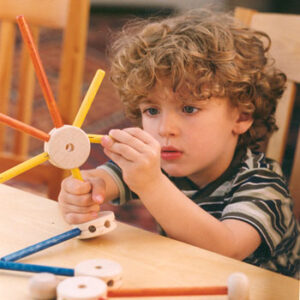
Can Make Mechanical Kinds of Toys “Work” (28-36 Months)
The learning process becomes more thoughtful for toddlers as they approach their third birthday. They begin solving problems and performing mental
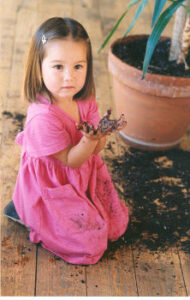
Capable of Some Deception (28-37 Months)
When children develop the ability to deceive others is controversial, and some researchers believe that “lying” does not truly emerge
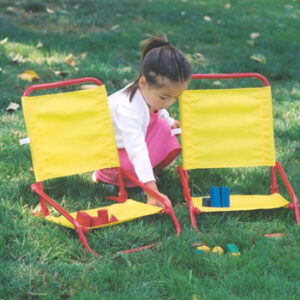
Cognitive and Learning: Overview (3-5 Years)
Between three and five, children become more sophisticated thinkers. They have a clearer sense of time, they can count objects
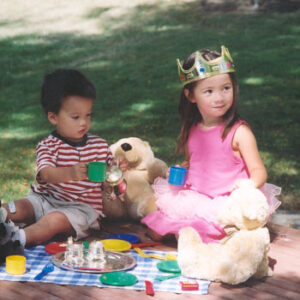
Increasingly Inventive Fantasy Play (36-48 Months)
Preschoolers enjoy vivid fantasy lives and imagine themselves in various roles, from firefighters and dancers to doctors and superheroes. Taking on
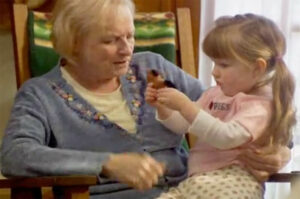
Story Time: Helpful Skills for Pre-Literacy
Sharing books is a great way to help your child learn to read and write. But there is something just
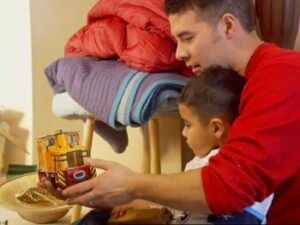
Tell Me a Story
Stories are a great way to connect! “That’s a picture of Grammy when she was a little girl. She loved
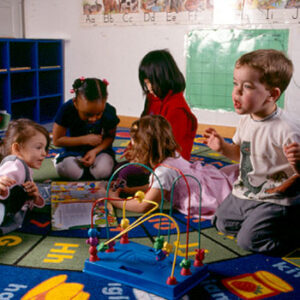
Capable of Approaching Problems from a Single Perspective (38-50 Months)
When faced with specific challenges, three-year-olds approach problems from a single perspective. They haven’t yet developed the ability to see
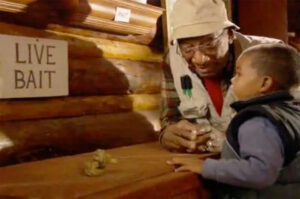
Gone Fishing: Understanding that Written Language Carries Meaning
Beginning at an early age, many children begin trying to understand the signs, labels, logos, and printed words they see
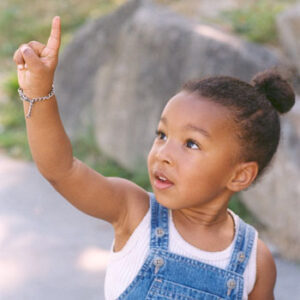
Capable of Verbal Knowledge of a Few Numbers (39-48 Months)
Preschoolers understand the concept of counting and may know a few numbers by the end of their second year. References:
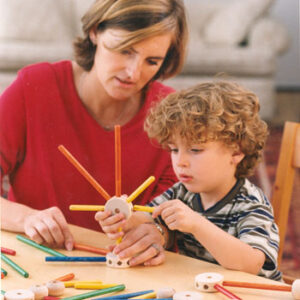
Can Correctly Name Some Colors (40-48 Months)
Although children can distinguish among colors at an earlier age and may learn color words, they may not consistently name
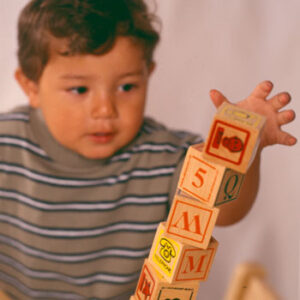
Learns to Count Objects Accurately (40-49 Months)
Once children begin to talk, counting soon follows. At first, this counting is not very precise, and the words for
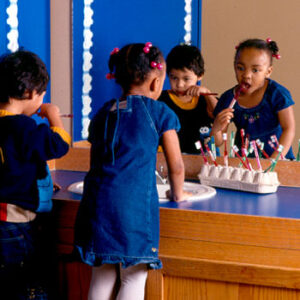
Begins to Have a Clearer Sense of Time (42-50 Months)
Children develop a much clearer sense of time at about 3 years of age. They know their daily routines and show
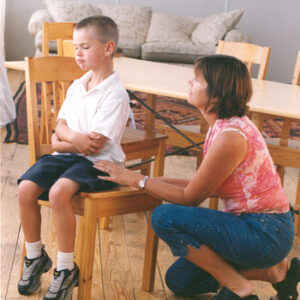
Becomes Capable of Deliberate Lying (46-53 Months)
When children develop the ability to deceive others is somewhat controversial. Although some researchers believe children can be deceptive by
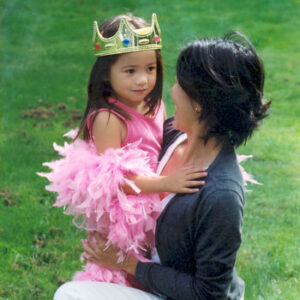
Realizes Other People Can Have Inaccurate Perceptions of the World (48-57 Months)
Children gain new insights into how other minds work between ages 4 and 5. Part of this understanding includes realizing
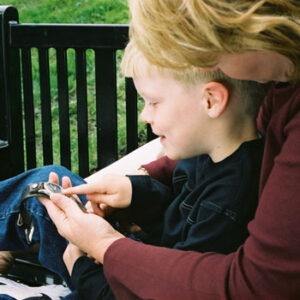
Shows Increased Sophistication in Understanding the Concept of Time (49-59 Months)
Preschoolers understand that days are divided into mornings, afternoons, and nights and that years consist of four seasons. When they
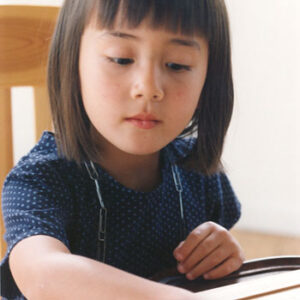
Realizes that People May Have Different Visual Views of the Same Object (50-58 Months)
Before children are about 4 years old, they don’t understand that their view of an object and someone else’s view
